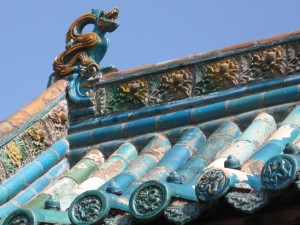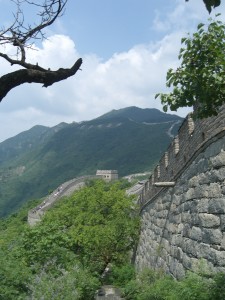Last week I talked about the character 秘 mì mysterious / mystery that I am going to use in my Ming Dynasty trilogy covers. There are other characters with the definition of mystery or mysterious. Another one is 神 shén. However, when the character shén is used it implies mystery in the sense of spiritual. One way for a non-native Chinese speaker to discover which character is best is to look up what other words use that particular character. This gives a good idea of the underlying connotation versus the character’s denotation. For shén [using the on-line dictionary http://www.mdbg.net/chindict/] we do find the word mysterious/mystery with both 神秘 shén mì and it is defined as “mysterious / mystery.” However, there are many other words which use shén and refer to the divine, to Daoism, mythology, mystical, gods, and the miraculous.
What does this imply? Well, if you are writing a mystery which centers on the supernatural and paranormal, perhaps you would want to use the character 神 shén versus 秘 mì because it implies a particular kind of mystery or mysterious event. It subtly alters your readers to another layer of meaning and insight.
Another character which can mean mystery is 玄 xuán. When xuán is used as a part of a word, we find a predominance of words referring to philosophical and spiritual schools of thought—Daoism, Buddhism, Confucianism. Xuán is also used in word combinations that refer to something being abstruse, simply difficult to understand. So, again, we find that although 玄 xuán can be used to mean mystery, it has a different underlying connotation from both神 shén and 秘 mì.
When choosing a Chinese word we have so many choices because each character used in creating that particular word brings with it a strong intellectual and emotional component. So, while my Mei-hua trilogy has religious and folk traditions included, they are a part of the cultural background of the period, not the central component of the stories, therefore, the character I chose was 秘 mì.

